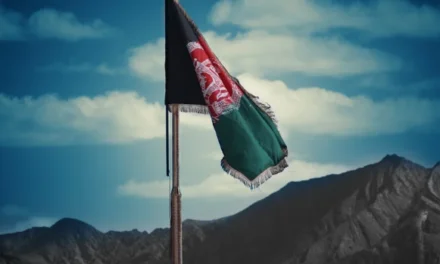Examining the Complex Relationship Between Egypt and Israel
The relationship between Egypt and Israel has been a complex and often turbulent one, marked by periods of tension and cooperation over the decades. As two of the most influential countries in the Middle East, the dynamics between these two nations have had a significant impact on the regional landscape.
Historical Context: The Shifting Dynamics Between Egypt and Israel
The Camp David Accords of 1978 and the subsequent Peace Treaty of 1979 were pivotal moments in the history of Egypt-Israel relations. These agreements, mediated by the United States, paved the way for the normalization of diplomatic and economic ties between the two countries. However, the road to this historic agreement was not without its challenges.
Prior to the Camp David Accords, Egypt and Israel had been engaged in a series of wars, including the 1967 Six-Day War and the 1973 Yom Kippur War. These conflicts had strained the relationship between the two nations, with Egypt initially refusing to recognize Israel’s right to exist. The Camp David Accords and the subsequent peace treaty represented a significant shift in the regional dynamics, as Egypt became the first Arab country to formally recognize and establish diplomatic relations with Israel.
The Role of the United States
The United States played a crucial role in mediating the relationship between Egypt and Israel, using its influence and diplomatic leverage to bring the two countries to the negotiating table. The Camp David Accords and the subsequent peace treaty were seen as a major foreign policy achievement for the United States, as it helped to reduce tensions in the region and paved the way for increased cooperation between Egypt and Israel.
Periods of Tension and Cooperation
Despite the historic peace treaty, the relationship between Egypt and Israel has continued to be marked by periods of tension and cooperation. There have been times when the two countries have worked closely together on issues of security and regional stability, such as in the fight against terrorism and the management of the Sinai Peninsula. However, there have also been instances of political and diplomatic tensions, particularly in the context of the ongoing Israeli-Palestinian conflict.
Egypt’s Current Stance Towards Israel
Egypt’s official position on the Israeli-Palestinian conflict has been one of cautious diplomacy, seeking to balance its relationships with both Israel and the Palestinian Authority. While Egypt has maintained its peace treaty with Israel and has engaged in various forms of economic and diplomatic cooperation, it has also been vocal in its support for the Palestinian cause and has called for a just and lasting solution to the conflict.
Economic and Diplomatic Ties
Despite the political tensions, Egypt and Israel have maintained a degree of economic and diplomatic cooperation. Trade and investment between the two countries have grown over the years, and there have been various initiatives to enhance cooperation in areas such as energy, tourism, and technology.
The Influence of Regional Politics and the Arab League
Egypt’s approach to Israel has also been shaped by the broader regional political landscape and its membership in the Arab League. As a key player in the Arab world, Egypt has had to navigate the complex dynamics of the region, balancing its relationships with Israel, the Palestinian Authority, and other Arab nations.
Factors Shaping Egypt’s Approach to Israel
Egypt’s approach to Israel has been influenced by a variety of factors, including domestic political considerations, public opinion, and strategic interests in the region.
Domestic Political Considerations
The political landscape within Egypt has had a significant impact on the country’s stance towards Israel. The rise and fall of the Muslim Brotherhood, for example, has been a key factor in shaping Egypt’s foreign policy, with the group’s more confrontational approach towards Israel contrasting with the more pragmatic approach of the current government under President Abdel Fattah el-Sisi.
The Impact of Public Opinion and Popular Sentiment
The Egyptian public’s perception of Israel has also been an important consideration for the government. While the peace treaty with Israel has been largely accepted by the Egyptian people, there is still a significant segment of the population that remains skeptical of Israel and its policies towards the Palestinians.
Egypt’s Strategic Interests in the Region
Egypt’s approach to Israel has also been shaped by its broader strategic interests in the region. As a key player in the Middle East, Egypt has sought to maintain a delicate balance between its relationships with Israel, the Palestinian Authority, and other Arab nations, in order to preserve its influence and safeguard its national security interests.
The Complexities of the Egypt-Israel Relationship
The relationship between Egypt and Israel is a complex and multifaceted one, with a range of factors shaping the dynamics between the two countries.
The Delicate Balance Between Security Cooperation and Political Tensions
One of the key challenges in the Egypt-Israel relationship has been the need to balance security cooperation with political tensions. While the two countries have worked together on issues of counterterrorism and regional stability, they have also faced periodic political and diplomatic tensions, particularly in the context of the Israeli-Palestinian conflict.
The Role of the Suez Canal and Other Economic Interests
Economic factors have also played a significant role in shaping the Egypt-Israel relationship. The Suez Canal, for example, has been a crucial economic asset for Egypt, and the country has sought to maintain its control and influence over this strategic waterway. Additionally, trade and investment between the two countries have been an important aspect of their bilateral relationship.
The Influence of the Muslim Brotherhood and Other Political Factions
The political landscape within Egypt has also been a key factor in the country’s approach to Israel. The rise and fall of the Muslim Brotherhood, for example, has had a significant impact on Egypt’s foreign policy, with the group’s more confrontational approach towards Israel contrasting with the more pragmatic approach of the current government under President Abdel Fattah el-Sisi.
The Impact on Regional Dynamics
Egypt’s stance towards Israel has had a significant impact on the broader regional dynamics in the Middle East.
The Influence on the Israeli-Palestinian Peace Process
As a key player in the region, Egypt has played an important role in mediating the Israeli-Palestinian conflict. The country has been involved in various efforts to facilitate dialogue and negotiations between the two sides, and has also been a vocal advocate for a just and lasting solution to the conflict.
Reactions and Responses from Other Arab Nations
Egypt’s relationship with Israel has also been closely watched by other Arab nations in the region. While some countries have welcomed the normalization of ties between Egypt and Israel, others have been more skeptical, particularly in the context of the ongoing Israeli-Palestinian conflict.
Implications for the United States and Global Geopolitics
The Egypt-Israel relationship has also had significant implications for the United States and global geopolitics.
The United States’ Role in Mediating the Relationship
The United States has played a crucial role in mediating the relationship between Egypt and Israel, using its diplomatic and economic leverage to bring the two countries together and maintain the peace treaty. The U.S. has also provided significant military and economic aid to both countries, further cementing its role as a key player in the region.
The Impact on International Diplomacy and Global Power Dynamics
The Egypt-Israel relationship has also had broader implications for international diplomacy and global power dynamics. As two of the most influential countries in the Middle East, the dynamics between Egypt and Israel have had a significant impact on the regional balance of power and the broader geopolitical landscape.
Conclusion: The Evolving Nature of the Egypt-Israel Relationship
The relationship between Egypt and Israel is a complex and ever-evolving one, shaped by a range of historical, political, economic, and strategic factors. While the two countries have maintained a formal peace treaty for over four decades, the dynamics between them have continued to shift and evolve, with periods of cooperation and tension.
As the regional landscape continues to change, it will be important for both Egypt and Israel to navigate these complexities with care and diplomacy, in order to maintain stability and promote the broader interests of the region. By understanding the nuances of this relationship, policymakers and analysts can better anticipate and respond to the challenges and opportunities that lie ahead.
FAQ: Does Egypt Support Israel?
Egypt has a complex history in its relations with Israel. While the two countries have a peace treaty in place since the Camp David Accords in 1979, the public sentiment towards Israel in Egypt can be mixed.
What is Egypt’s stance on Gaza and the Palestinians?
Egypt has been involved in diplomatic efforts to mediate conflicts between Israel and Hamas in Gaza. Egypt also plays a role in supporting Palestinian interests, especially in relation to the Rafah border crossing and the Gaza Strip.
How has the Muslim Brotherhood influenced Egypt’s relations with Israel?
The Muslim Brotherhood, when in power in Egypt, had a more hostile stance towards Israel. However, under President Abdel Fattah al-Sisi, who removed the Muslim Brotherhood from power, Egypt’s relations with Israel have remained relatively stable.
What is the current status of the Camp David Accords between Egypt and Israel?
The Camp David Accords have been crucial in maintaining peace between Egypt and Israel. Despite occasional tensions, both countries have upheld their commitments under the agreement.
How does Egypt’s relationship with Hamas impact its relations with Israel?
Egypt has a complex relationship with Hamas, the ruling party in Gaza. While Egypt has at times supported efforts to broker peace with Israel, its border control measures and security concerns have influenced its stance towards Hamas.
What role does Egypt play in the peace process between Israel and the Palestinians?
Egypt has historically been a key player in mediating peace talks between Israel and the Palestinians. Its diplomatic efforts have aimed at finding a sustainable solution for the conflict in the region.
How does the Egyptian public view relations with Israel?
The Egyptian public opinion on relations with Israel varies. While some view Israel as a regional ally, others hold more critical views, often influenced by historical events and political dynamics.





